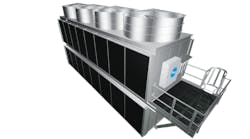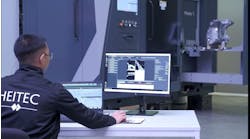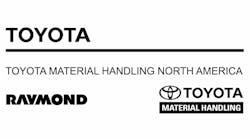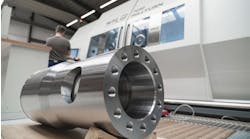Among the numerous computing functions for a multi-plant forging operation is process simulation prior to tooling. Here a FormTech engineer simulates a forging sequence for an allwheel drive rear axle.
When it acquired Metaldyne’s North American forging operations, in addition to seven plants in three states boasting more than 1 million ft2 of manufacturing space, FormTech Industries acquired a patchwork of numerous old IT system components.
“We had close to 50 old systems that we wanted to replace,” recalls Nick Bird, director of Engineering at FormTech. “A lot of people knew about a few of the systems, but I don’t think anybody understood all of them.”
FormTech’s goal became to standardize with a single ERP system that served the needs of engineering, sales, production, inventory, shipping, supply-chain management, quality, accounting, and HR functions. (ERP, for “enterprise resource planning,” describes software suites that combine of applications used to coordinate business administration functions, such as financials, manufacturing, and human resources, among others.) For Nick Bird, who joined FormTech from a forging operation in the United Kingdom, Plex was a natural choice. “I had been using Plex since 2000 in the U.K., and I’d never seen better.”
Plex not only untangled FormTech from its old corporate systems and established an independent infrastructure, it also provided a turnkey system migration during the one-year window after which FormTech would lose access to all of the legacy applications of the former corporate structure.
FormTech, with only a single IT employee, relied on Plex to provide the necessary people and expertise during the migration. Plex now provides ongoing IT support of all end-user IT needs within the company – a single-source of responsibility for all of their systems, with none of the “blame shifting” that might occur among multiple software and hardware systems providers.
That allows FormTech founder Dr. Richard McDermott, CEO Mike Ryan, and the management team to focus on meeting the needs of their auto industry customers who set critical price, quality, and delivery standards. Just as important, it allows FormTech to meet its own goal of diversifying the markets in which it competes, reversing the previous owner’s strategy of focusing strictly on the automotive market.
The turnkey approach offered by Plex assured data would be kept in sync during the migration period and, critically for FormTech and its auto-industry customers, assured that there would be no interruption to production capabilities. Plex Systems established an entirely new WAN (wide area network) infrastructure to connect FormTech facilities and migrate off the old WAN circuits connecting them to the legacy systems.
Plex created a new, independent internal Domain environment into which all computers and users might be migrated; established new security policies and groups within the environment for appropriate access and permissions; migrated all e-mail and communications to the Plex Online hosted mail solution; designed and deployed new internal wireless networks at all plant locations; and specified and delivered shop-floor workstations.
“On the shop floor, Plex is much easier to use,” according to Bird who notes employees find it much more user friendly than the old programs. Plex Online links FormTech’s locations in three states, providing quick access to real-time data.
“I can see what’s happening at all our plants,” Bird explained. “We can get into any information we need to analyze and make instant changes.”
For managers, instantly available real-time data provided the tools to move operations to a ‘just in time’ environment, reducing inventories and costs while improving quality controls. For engineers, Plex Online offers immediate tooling analysis and production control.
“If we want to analyze some particular dimension on a part, we can get into that information and change the instruction data on the shop floor instantly. That’s a very, very powerful tool for an engineer to have,” Bird points out. It gives engineers huge amount s of informat ion to make strong engineering decisions and permits running changes to tooling and production operations.
Plex Online allows managers at FormTech’s headquarters in Royal Oak, MI, to see exactly what is in production, literally hour-by-hour or minute-by-minute, in all of its plants, along with Failure Mode and Effects Analysis (FMEA) and Statistical Process Control (SPC) data from electronic gauges. That makes the quality function very visible.
“On the shop floor, Plex is much easier to use,” according to FormTech director of engineering Nick Bird. Workers reportedly find it to be user friendly, and Plex Online compiles and makes available real-time data from FormTech’s operations in three states.
“We can see what’s running on the press at the moment, what dimensional controls we’ve got on the press, what the results are as we’re running in the press,” Bird explains. All that information is readily available to both technical engineers and quality engineers with the Plex Quality Module, allowing them to analyze results quickly.
FormTech believes Plex Online is so powerful that it actually helps expand the customer base.
“I think it wins customers for us,” Bird says of the online performance. He explains that when potential customers see the Plex Online systems, how the functions all links together and the system prevents a number of fairly elementary mistakes that could be made, they know their specs will be met and that they’ll get what they ordered from FormTech.
“It is one thing to say you have a system and follow it, but Plex drives you to use the system and will not let you proceed in many instances unless you have carried out the list of checks that we’ve set,” Bird says. “They’re very, very good systems and they’re very impressive when you’re talking to customers.”










